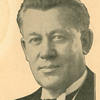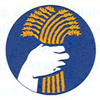Unions are democratic organizations formed by workers to strengthen their position with employers regarding wages, benefits and conditions of work, and with governments regarding social and economic issues affecting themselves and other members of the working class.
Prairie unions have sought to expand their memberships and influence over a century of rapid economic change. During the first few decades of the 20th century waged workers were a minority in Western Canada and only a few skilled tradesmen were organized in unions. At the beginning of the 21st century the paid labour force is clearly the largest occupational sector in the region, far larger than the farming and self-employed sectors. Still only a minority of waged workers are represented by unions. Much of their recent growth in union membership has been in the public service sector, where many females are employed.
Unions distribute a great deal of promotional and advocacy literature in the course of their work. Since a union’s strength depends on the solidarity of its membership effective unions typically keep their members informed of the union’s successes and challenges, and its positions on public issues. Union members frequently receive brochures and newsletters from their local, and from the provincial and federal divisions of their union. Many unions are involved in the recruitment and organization of new members and workplaces, which require publications that present the possible benefits of union certification.
In the small minority of cases where negotiations fail to result in a satisfactory contract, strike leaflets and picket signs are produced. In most strikes workers seek to maximize their support from other unions and from the general public. It is increasingly common in strikes involving public service workers such as teachers, nurses, healthcare workers, and university and government employees, for both sides in the dispute to publicize their positions in newspaper ads. Lengthy strikes in the private sector have lead to similar dueling newspaper ads and on a few occasions to unions publicizing consumer boycotts of the employer’s products.
Public service unions are keenly interested in any contraction or expansion of budgets might affect its membership. On many occasions unions have distributed advertising warning the public how public service cuts might affect service.
 Union leaders have traditionally assumed a responsibility to improve the lives of all working people, including the unorganized. In earlier periods unions were leaders in advocating Medicare, old age pensions, minimum wages and workplace safety legislation. More recently unions have either on their own or in coalition with other groups promoted pay equity, racial diversity and LGBT rights, improvements in the position of part-time workers and the abolition of child and forced labour in developing countries. Union leaders have traditionally assumed a responsibility to improve the lives of all working people, including the unorganized. In earlier periods unions were leaders in advocating Medicare, old age pensions, minimum wages and workplace safety legislation. More recently unions have either on their own or in coalition with other groups promoted pay equity, racial diversity and LGBT rights, improvements in the position of part-time workers and the abolition of child and forced labour in developing countries.![10 Pay Equity Myths. [199-].](tradeunion/images/25403-small.jpg)
In conjunction with their public advocacy and lobbying efforts, unions have sought to advance their goals through political action. Some early Trades and Labour Councils supported slates of labour friendly candidates for city councils and school boards in opposition to business dominated slates. Since the creation of the CCF in 1932 unions have been closely associated to that party and its successor the New Democratic Party. The Canadian Labour Congress was one of the original founders of the NDP in 1961. Most union sponsored literature distributed in federal and provincial elections since that date has directly or indirectly supported NDP candidates and the positions of that party.
|






